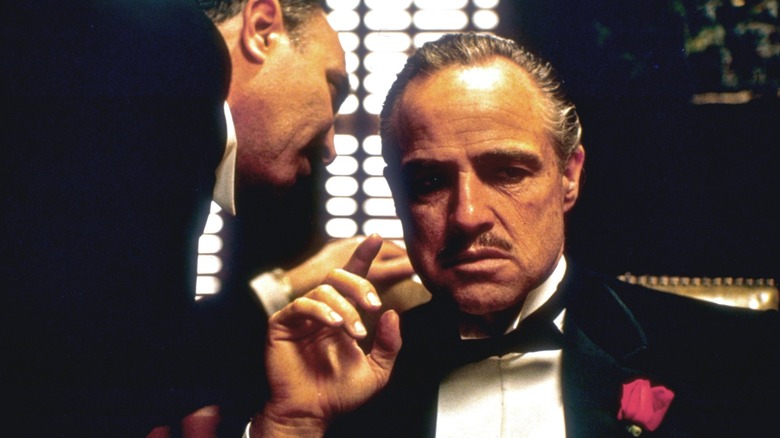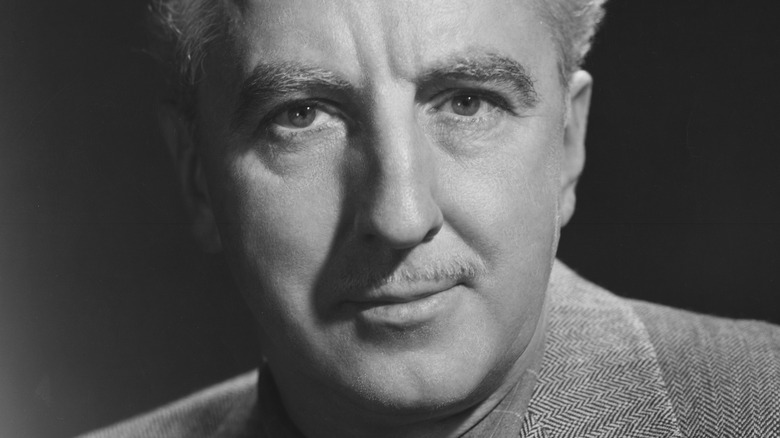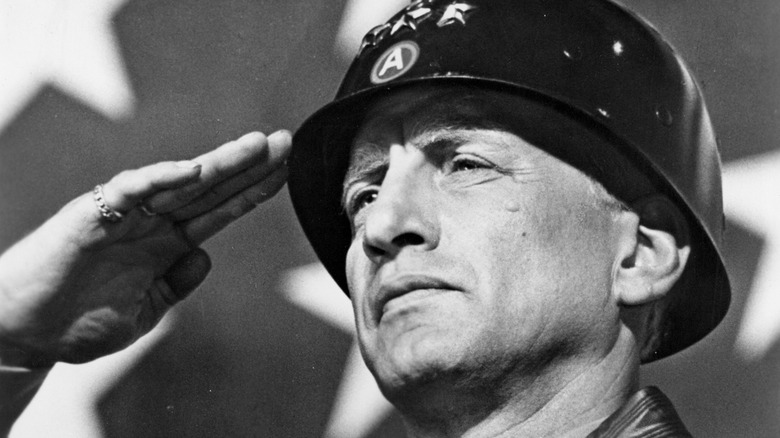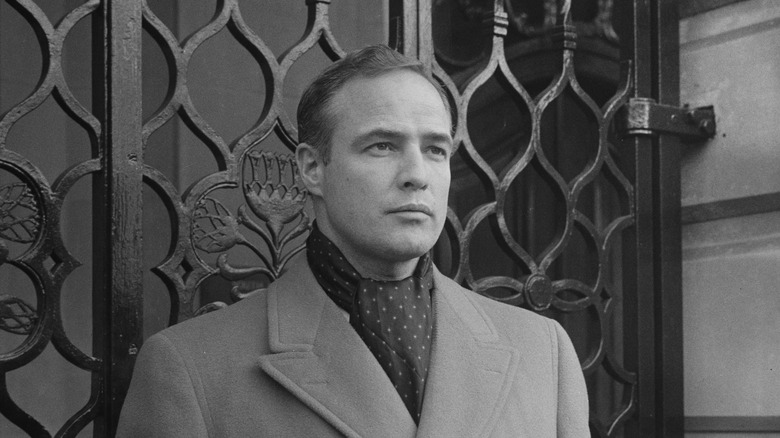Oscar Winners Who Refused Their Awards - And Why
For most in the film industry, standing on the stage at the Academy Awards and giving an acceptance speech while holding a golden Oscar trophy would be a crowning career moment. It's something that young actors and aspiring directors dream about — an achievement that itself is a household name. And yet, not every Academy Award winner has received the honor joyously.
When acclaimed Japanese animator Hayao Miyazaki won in 2003 for "Spirited Away," he chose not to show up to the actual ceremony, later explaining that his absence was meant as a protest against America's war in Iraq. Screen legend Katharine Hepburn, still the actress with the most Oscars ever, won four in her career but only attended the event in person once. But there's a difference between boycotting or failing to attend and outright rejecting the award itself.
In the long history of the Academy Awards, only three winners have ever refused their trophy. It hasn't happened in more than 50 years, but that doesn't mean that it couldn't happen again. Here's every Oscar winner who's ever refused their award and why they did it.
Dudley Nichols, 1935
The first person to ever refuse an Academy Award was Dudley Nichols, a screenwriter who won in 1935 for his screenplay for "The Informer." It was one of several awards claimed by the film at that year's Oscars, but Nichols rejected it. Though the event took place nearly 90 years ago, the reasons for his refusal are strikingly relevant today.
Nichols was a founding member of the Screen Writers' Guild — now the Writers Guild of America (WGA) — which was formally recognized as a union just two years earlier in 1933. At the time, there was tension between the Academy and the Union regarding pay cuts and other Depression-era issues. For that reason, Nichols did not attend the Academy Awards.
"As one of the founders of the Screen Writers' Guild, which was conceived in revolt against the academy, and born out of disappointment with the way it functioned against the employed talent in any emergency, I deeply regret that I am unable to accept the award," Nichols wrote in an explanatory letter reported by The New York Times. "To accept it would be to turn my back on nearly 1,000 members of the Screen Writers' Guild." Given the 2023 Hollywood union strikes, which were kicked off by the WGA fighting for better streaming residuals and AI protections, Nichols' objections remain topical. He did officially accept the award several years later, but he's still a strong example of someone using their platform to uplift their fellow artists.
George C. Scott, 1971
In 1971, acclaimed actor George C. Scott became the second person to ever decline an Academy Award. He was nominated in the best actor category for his starring turn in the historical drama "Patton," playing the eponymous American general. And while the occasion marked his first Oscar victory, his rejection wasn't the first time that he expressed distaste for the ceremony.
Per BBC News, Scott found the whole awards show spectacle "demeaning" to the art of acting and disliked the idea that actors were in competition with one another. Nearly a decade earlier in 1962, he had been nominated for best supporting actor for his performance in "The Hustler" and asked the Academy via telegram afterward not to consider him. He did so respectfully, simply emphasizing that he wasn't interested in being involved. Clearly, the recipients of his message didn't listen. He made a similar statement after winning in 1971.
Outside of his official messaging, Scott was a bit more blunt in his dismissal of the Oscars, referring to the event as a "meat parade." He was famously opinionated, especially on matters of art and acting, and he clearly didn't mince words about an institution that he saw as a farce. In total, Scott was nominated for four Academy Awards, and "Patton" wasn't the last time that the Oscars put him up for an accolade he had no interest in.
Marlon Brando, 1973
There is perhaps no film performance more famous than Marlon Brando's leading turn in "The Godfather." Though he had already cemented himself as one of the most significant actors of all time when the movie came out, it may be his most iconic performance today, and for good reason. In 1973, Brando won an Academy Award for playing Vito Corleone in the legendary picture, but he turned it down.
Unlike the other two people on this list, Brando didn't simply refuse to show up. In his stead, he sent Sacheen Littlefeather, a Native American activist, who informed the presenters and the viewers at home that Brando was declining the award. "He very regretfully cannot accept this very generous award," she said in her speech. "And the reasons for this being are the treatment of American Indians today by the film industry and on television in movie reruns, and also with recent happenings at Wounded Knee." That last piece came in reference to the Wounded Knee Occupation of that year, during which Oglala Lakota members took over the South Dakota town in protest of the U.S. Government's treatment of Native Americans and faced off against U.S. Marshals.
The award rejection was highly controversial then and remains one of the most jaw-dropping Oscars moments of all time. Since Littlefeather's death, there have also been serious questions as to whether or not she was truly Native American herself. Still, Brando's statement remains an early instance of actors using the Academy Awards as a platform for speaking out. "The motion picture industry has been as responsible as any for degrading the Indian," the actor wrote in his full statement to the press. "It has not been my wish to offend or diminish the importance of those who are participating tonight."



